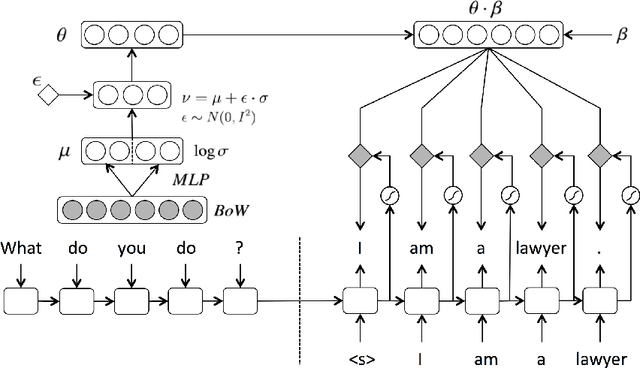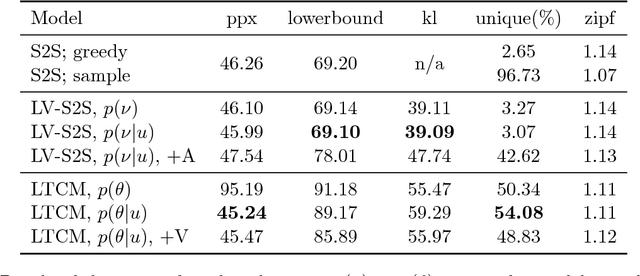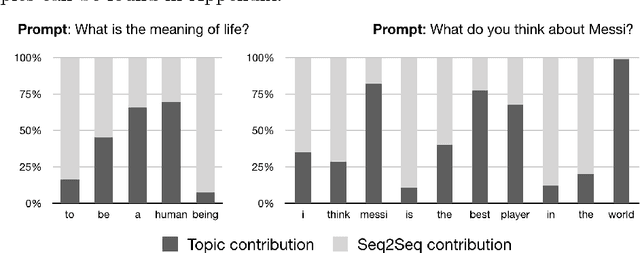Latent Topic Conversational Models
Paper and Code
Sep 19, 2018



Latent variable models have been a preferred choice in conversational modeling compared to sequence-to-sequence (seq2seq) models which tend to generate generic and repetitive responses. Despite so, training latent variable models remains to be difficult. In this paper, we propose Latent Topic Conversational Model (LTCM) which augments seq2seq with a neural latent topic component to better guide response generation and make training easier. The neural topic component encodes information from the source sentence to build a global "topic" distribution over words, which is then consulted by the seq2seq model at each generation step. We study in details how the latent representation is learnt in both the vanilla model and LTCM. Our extensive experiments contribute to better understanding and training of conditional latent models for languages. Our results show that by sampling from the learnt latent representations, LTCM can generate diverse and interesting responses. In a subjective human evaluation, the judges also confirm that LTCM is the overall preferred option.
 Add to Chrome
Add to Chrome Add to Firefox
Add to Firefox Add to Edge
Add to Edge